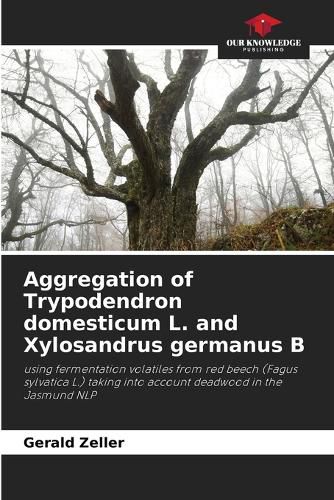Readings Newsletter
Become a Readings Member to make your shopping experience even easier.
Sign in or sign up for free!
You’re not far away from qualifying for FREE standard shipping within Australia
You’ve qualified for FREE standard shipping within Australia
The cart is loading…






In Jasmund National Park on the Jasmund Peninsula of the island of Ruegen, a forest area predominantly covered with red beech (Fagus sylvatica L.) that has not been used for deciduous forestry since 1991, trap catches of bark beetles were carried out using slit traps from March to June 2015. The abundance of Trypodendron domesticum L. and Xylosandrus germanus BLANDF. was determined by applying volatile lineatin, ethanol and acetic acid. T. domesticum was aggregated by lineatin and ethanol, but not by acetic acid. No evidence of X. germanus was found in the study area. The families Rhizophagidae, Salpingidae, Staphylinidae, Melyridae and Cleridae were identified as antagonists of T. domesticum. Hylecoetes dermestoides L. and Cryphalus saltuarius WEISE were identified as further species potentially harmful to the ecosystem of the red beech forest and its management, and their influence was discussed.
$9.00 standard shipping within Australia
FREE standard shipping within Australia for orders over $100.00
Express & International shipping calculated at checkout
Stock availability can be subject to change without notice. We recommend calling the shop or contacting our online team to check availability of low stock items. Please see our Shopping Online page for more details.
In Jasmund National Park on the Jasmund Peninsula of the island of Ruegen, a forest area predominantly covered with red beech (Fagus sylvatica L.) that has not been used for deciduous forestry since 1991, trap catches of bark beetles were carried out using slit traps from March to June 2015. The abundance of Trypodendron domesticum L. and Xylosandrus germanus BLANDF. was determined by applying volatile lineatin, ethanol and acetic acid. T. domesticum was aggregated by lineatin and ethanol, but not by acetic acid. No evidence of X. germanus was found in the study area. The families Rhizophagidae, Salpingidae, Staphylinidae, Melyridae and Cleridae were identified as antagonists of T. domesticum. Hylecoetes dermestoides L. and Cryphalus saltuarius WEISE were identified as further species potentially harmful to the ecosystem of the red beech forest and its management, and their influence was discussed.